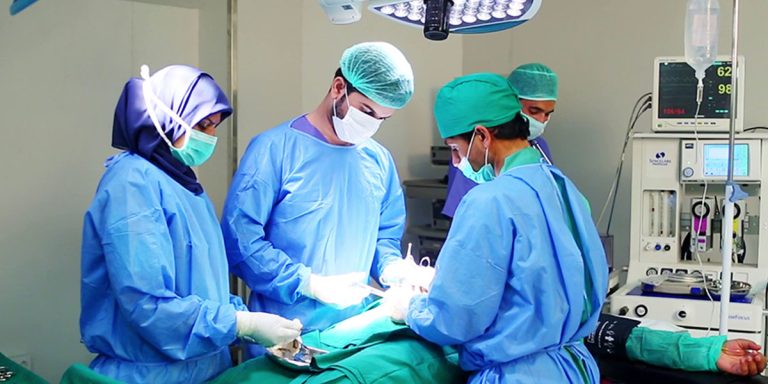
Operation theatre technology is an essential aspect of modern healthcare. This course deals with the management of surgical environments, patient care, and advanced medical tools. Students enrolled in this course learn how to work along with surgeons, anesthesiologists, and nurses so that surgical procedures can be performed with precision and efficiency. It is suitable for people with a keen interest in healthcare, technical skills, and a passion for supporting life-saving medical procedures.
The course prepares individuals to manage operating rooms, assist during surgeries, and ensure patient safety throughout every stage of surgical care. The article provides a detailed overview of what students can expect to learn, especially for those considering an Operation Theatre Technology Course in Hyderabad.
Skills and Techniques Learnt
An Operation Theatre Technology Course is specialized training designed to equip students with the skills and techniques to assist surgical teams in hospitals and healthcare facilities.
1. Surgical Protocols
One of the major skills learned in this module is the following of surgical protocols. The environment of an operating theatre has to be kept sterile and safe. The students learn:
- Aseptic Practices: The correct hand washing, putting on sterile gloves, and gowning practices.
- Sterilization Procedures: The use of autoclaves, chemical disinfectants, and other sterilizing apparatus.
- Surgical Site Infection Prevention Measures: Ways of preventing infections during and after surgery, which include environmental cleaning and disposal of waste.
These protocols are part of patient safety and lessen the complications during and after surgery.
2. Patient Preparation
Preparation of the patient before surgery is part of the role of the operation theatre technologist. These include:
- Conducting checks on the heart rate, blood pressure, and oxygen saturation.
- Positioning the patients correctly on the operating table for the procedure, thereby preventing complications such as pressure sores.
- Assisting anesthesiologists in the preparation and administration of anaesthesia.
Students are trained to follow checklists and protocols meticulously for readiness before the surgeon starts the procedure.
3. Handling and Care of Equipment
A surgical theatre uses advanced medical equipment for an operation. Students are taught:
- How to assemble and disassemble surgical instruments.
- How to clean and sterilize reusable equipment.
- To maintain and troubleshoot surgical devices, including electrocautery machines, endoscopes, and monitors.
These practices make sure that surgeries will go as scheduled, with no interference from a technical malfunction of equipment during surgery.
4. Surgical Process Involvement
During surgery, one should play an active role. In return, the student is prepared for:
- Handing instruments over to surgeons at the exact and proper time.
- Using pieces of equipment, such as the suction, light, or endoscope.
- Maintaining effective communication to prepare for what the surgeons require.
The training also includes understanding different surgical specialities, such as orthopedics, cardiology, and neurology, to adapt to the unique demands of various procedures.
5. Patient Monitoring
Monitoring patients is critical during surgery. Students are trained to operate and interpret data from monitoring devices, including:
- Electrocardiograms (ECG) to track heart rhythms.
- Pulse oximeters for oxygen levels.
- Blood pressure monitors.
This knowledge allows technologists to alert the surgical team to any anomalies, ensuring timely interventions.
6. Emergency Management Skills
Emergencies can arise during surgeries, and operation theatre technologists must be prepared to respond effectively. Training includes:
- Assisting in cardiopulmonary resuscitation (CPR).
- Managing equipment for advanced life support.
- Helping to stabilize patients during unforeseen complications.
Students gain hands-on experience through simulations, which help build confidence in managing critical situations.
7. Post-Operative Care and Theatre Management
The operating theatre has to be cleaned, re-stocked, and ready for the next surgery after a procedure. Students are taught how to:
- Dispose of biohazardous waste in a safe manner.
- Examine and arrange instruments for later use.
- Record details of the surgery in the patient’s medical history.
Good post-operative care guarantees smooth operations and minimal downtime between procedures.
Course Modules and Topics
The curriculum of an Operation Theatre Technology Course in Hyderabad is comprehensive, covering a mixture of theoretical knowledge and practical skills. The core modules are as follows:
1. Anatomy and Physiology
Understanding the structure and functions of the human body is an essential requirement for operation theatre technologists. This module provides foundational knowledge of the body systems, enabling students to understand surgical implications and make appropriate preparations during procedures.
2. Principles of Surgery
This module introduces students to the basics of surgical procedures, including:
- Types of surgeries (minimally invasive, open, robotic).
- Stages of surgical care (pre-operative, intra-operative, post-operative).
- Instruments and tools used for various types of surgeries.
3. Infection Control and Sterilization Techniques
Maintaining a sterile environment is central to operation theatre management. Students learn:
- Methods for sterilizing equipment and surgical areas.
- Protocols for handling infectious materials.
- Best practices for minimizing contamination risks.
4. Anesthesia Technology
This module covers the fundamentals of anaesthesia, including:
- Types of anaesthesia (local, general, regional).
- Monitoring anaesthetized patients.
- Assisting anesthesiologists during induction and recovery phases.
6. Medical Ethics and Communication
Operation theatre technologists have to strictly follow ethical guidelines. This module emphasizes:
- Maintaining patient confidentiality.
- Good Communication Skills by Surgical Teams
- Good Professional Behavior in Stressful Situations.
Job Prospects after Qualification
Operation Theatre Technology graduates have a lot of diversified job opportunities in the healthcare sector. Some of the jobs typically include:
- Operation Theatre Technician: Administration of surgical environment and operation.
- Anesthesia Technician: Technical assistant to anaesthetists in the administration of anaesthesia and monitoring of a patient.
- Surgical Assistant: Direct assistance to the operating surgeon.
- Infection Control Officer: Ensuring and maintaining sterilization and infection control practices.
The requirement for professionals in this sector keeps increasing as healthcare centres continue to expand their surgical capacities.
Eligibility and Course Duration
Students seeking admission into an operation theatre technology course will require the following:
- Completion of higher secondary education, which is 10+2, with a science background including Physics, Chemistry, and Biology.
- An age of 17 years and above.
Course Duration
The duration differs with the level of the course:
- Diploma Courses: 2 years
- Bachelor’s Degree Courses: 3-4 years.
- Course certification, 6 months to 1 year
These allow a student to make a career in an option that will take them anywhere from one direction to the other.
Type of Program INR
- Diploma 50,000 to 1,50,000
- Bachelor’s Degree 1,50,000 to 4,00,000
- Certificate 20,000 to 50,000
These figures are indicative and may vary depending on the facilities, duration, and additional charges.
Benefits
Benefits of Studying Operation Theatre Technology in Hyderabad include:
- Easy Access to Sophisticated Medical Setup: Hyderabad is equipped with well-endowed hospitals and training centers, providing students with the best practical experience.
- Exposure to Experienced Faculty: Students learn from experienced practitioners who have the real-life experience of implementing the concept in real life.
- Internship Opportunities: Many hospitals in Hyderabad offer internships, giving students the chance to apply their knowledge in real-life scenarios.
- Growing Job Market: The city’s expanding healthcare infrastructure creates ample job opportunities for graduates.
Conclusion
An Operation Theatre Technology Course is a way to a successful career in the healthcare industry. The course equips students with necessary skills, ranging from preparation of patients and equipment management to assistance during surgeries and handling emergencies.
Hyderabad is an excellent setting to pursue this course, offering advanced medical facilities and educational institutions. Opportunities abound in general surgery, anaesthesia technology, and infection control, and the list goes on and on.
It equips learners not only with technical competencies but also teaches them professional ethics, teamwork, and working in high-pressure and fast-moving environments. The operation theatre technology course for anyone with an avid interest in healthcare and surgical care can be a vital source toward influencing significant change within a healthcare institution.


